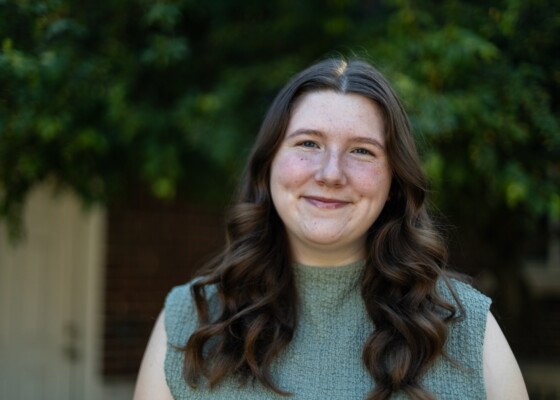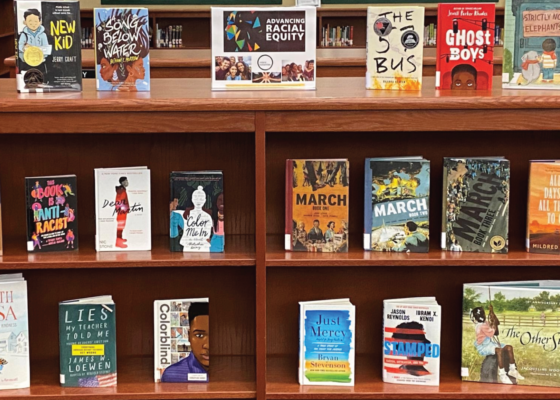Cedar Lake Historical Association uses food to connect community with Potawatomi heritage
October 18, 2024Day in and day out, Indiana Humanities’ grantees and partners are bringing the humanities to life for Hoosiers across the state. From small towns like Jasper to big cities like…
Day in and day out, Indiana Humanities’ grantees and partners are bringing the humanities to life for Hoosiers across the state. From small towns like Jasper to big cities like Fort Wayne, our grantees are creating thoughtful programs, bridging divides and inspiring Hoosiers to think, read and talk. As part of our ongoing efforts to uplift the work of our partners, we’re highlighting past and present grantees and sharing their stories of impact.
* * *
The Cedar Lake Historical Association (CLHA) runs the Museum at Lassen’s Resort, located on the shores of Cedar Lake in northwest Indiana. CHLA has received several grants from Indiana Humanities over the years, and this summer it used our funds to develop a unique programming series—serving up events that were both tasty and educational.
Through the support of our Action Grant, CLHA implemented “Culinary Anthropology,” a series of programs that offered museum visitors the opportunity to learn about the Potawatomi people by exploring their traditions around food.
The idea behind “Culinary Anthropology” took root in late 2023. That fall, CLHA executive director Julie Zasada visited the Eiteljorg Museum in Indianapolis during the National Humanities Conference and heard Dani Tippmann, a member of the Miami Tribe of Oklahoma, discuss the ways that the Miami use native plants as part of their culture. Around the same time, she attended a presentation by Dr. Ezekiel Flannery on the differences in diets between Native Americans and early European settlers to northwest Indiana.
Inspired by what she learned, Zasada and her team at CLHA decided to highlight some of the stories of the Potawatomi (Bodéwadmik), on whose ancestral homelands Cedar Lake is located. The Potawatomi maintained summer and winter encampments on the northeastern shore of the lake, which they call Mskwabagombes (Lake of the Red Wood). There they fished, hunted, gathered, and harvested until many were forcibly removed by the United States government.
Working with advisors from the Potawatomi Center of History and Culture in Michigan, CLHA introduced its “Culinary Anthropology” programs by creating an exhibit detailing the different moons in the Potawatomi calendar, the appearance of animals and events in nature that marked changes in the seasons, and how the Potawatomi hunted, planted, and harvested food near Cedar Lake.
To further engage the community, CLHA offered two educational presentations as well.
Dr. Flannery deliverd a talk on the traditional food cultures of northwest Indiana, examining the native vegetation of the region, the diet of the Potawatomi, the influence of European settlers on the foodways, and more.
Chef Erik Hinds and Anna Ortiz followed with a meal tasting for museum guests, offering a modern menu inspired by seasonal flavors from the Potawatomi culinary tradition.
According to Zasada, the museum felt that a focus on food—especially the tasting event—would be a good way to begin engaging participants in the story of the Potawatomi.
“The Potawatomi were hunters and trappers and farmers, and so we were looking to figure out what would they have been foraging for here in Cedar Lake and trying to turn that into a modern menu—traditional ingredients with a modern twist,” Zasada said.
Zasada said that, as suspected, the tasting and other programs all reached full capacity, with participants walking away surprised by how milkweed, squash, beans, and other traditional ingredients could create such a delectable meal.
“It really was some of the best food I’ve ever had in my life. I didn’t think that eating milkweed was going to be something that I’d be able to say was so delicious,” Zasada said. “[Chef Hinds] was able to take those native ingredients and do something really special with them that I don’t think any of us expected.”
Beyond the tasting, Zasada said she’s grateful the Action Grant that CLHA received from Indiana Humanities supported a permanent exhibit for community members, helping them to connect with generations centuries in the past.
Zasada said that the exhibit’s information on Potawatomi moons aims to “remind people that the moon that we look upon today is the same one that they looked upon all those years ago.”
Zasada also said that Indiana Humanities’ staff was crucial in helping to develop the framework of the program.
“Every time I sit down to write a grant [application], I always give a quick phone call to [Indiana Humanities] and say, ‘Here’s what I’m thinking,’ and then [they’ll] remind me of any key programming suggestions,” Zasada said. “You need to get really creative and clever in the ways that you take an ordinary event and tie history into it. And the staff at Indiana Humanities is very helpful in doing that, talking through the idea before you even begin a grant application process.”
CLHA’s “Culinary Anthropology” program was such a success that it received the Indiana Historical Society’s 2024 Indiana History Outstanding Event or Project Award, which, according to the award’s guidelines, honors “an organization for an exceptional educational event or history project implemented during the past year, either one-time or ongoing, which relates to that organization’s mission.”
“We’ve been working with Local History Services at the Indiana Historical Society for several years as well and received numerous grants from them,” Zasada said. “So it was definitely an honor for them to recognize the unique nature of the program that we were able to pull together and have an award tied to that.”
To learn more about CLHA’s museum offerings, visit the Museum at Lassen’s Resort website. The museum is open until Oct. 29 before closing for the season.
To learn more about Indiana Humanities’ grants, visit our grants web page—or follow Zasada’s example and either call us (317.616.9784) or email us (grants@indianahumanities.org).



